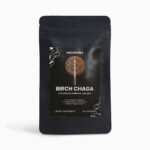
“Debunking Misleading Marketing Claims in the Supplement Industry”
Supplements are everywhere these days. From Instagram influencers to grocery store shelves, it seems like everyone is touting the benefits of a certain pill or powder. But how much of these claims can we trust? In an industry that is largely unregulated, it’s important to approach supplement marketing with a critical eye. In this article, we’ll be taking a closer look at some of the most common misleading marketing claims in the supplement industry and how you can spot them. Don’t fall for the hype – read on to learn how to separate fact from fiction in the world of supplements.
1. Introduction: The Problematic Nature of Misleading Marketing Claims in the Supplement Industry
Misleading marketing claims have become a significant problem in the supplement industry. Companies often make sweeping statements about their products’ effectiveness that are not supported by scientific evidence. This can mislead consumers into purchasing supplements that do not improve their health or well-being.
One of the most common misleading marketing claims is that a particular supplement can cure or prevent a particular disease or condition. For example, a company may claim that its vitamin C supplement can prevent COVID-19. It is vital to note that no supplement can cure or prevent any disease, as the US Food and Drug Administration has not approved these claims.
Additionally, companies often use pseudoscientific language to imply that their products are backed by scientific evidence. For instance, they may claim that their supplement is “clinically proven” or “supported by research.” However, these claims may be based on flawed or biased studies, or they may be outright false. Consumers must be aware of these misleading marketing claims and always check the scientific evidence to make informed decisions.
2. Understanding the Regulations Surrounding Supplement Advertising and Labeling
Supplements can be a great addition to your wellness routine, but it’s important to understand the regulations surrounding their advertising and labeling. The Food and Drug Administration (FDA) is responsible for ensuring that supplement manufacturers make accurate claims about their products and provide clear labeling that includes important information for consumers.
According to the FDA, supplement manufacturers must ensure that their advertising is truthful and not misleading. This means that any claims about the benefits of a supplement must be supported by scientific evidence. If a manufacturer makes a claim that a supplement can cure or treat a specific disease, it must be backed up by clinical studies that support that claim.
In addition to accurate advertising, supplement labeling is also an important consideration. The FDA requires that all supplements be labeled with a Supplement Facts panel that includes information about the serving size, the number of servings per container, the ingredients, and the amount of each ingredient per serving. Consumers should carefully read supplement labels to ensure that the product is safe and appropriate for their needs. By , you can make informed choices about which supplements to use in your wellness routine.
3. Debunking Common Supplement Marketing Claims: Weight Loss Supplements
First off, resist the temptation to purchase any supplement that claims to help in weight loss. There’s no shortcut to losing weight, and no supplement will make the pounds vanish overnight. Secondly, keep in mind that supplements aren’t regulated like medications, so many make big promises without any scientific evidence to back them up.
One common supplement marketing claim is that the product can “boost metabolism.” However, in reality, supplements often contain herbs or chemicals that can overstimulate the body’s natural processes, putting unnecessary stress on your system. A few studies suggest some supplements may have mild metabolism-boosting benefits, but these tend to be minimal, with no significant impact on overall weight loss.
Another popular claim is that the supplement can “burn fat.” In reality, the only way to burn fat is through exercise and calorie restriction. There is some limited evidence that certain supplements, like green tea or caffeine, may slightly enhance fat-burning, but these effects are minimal and counterbalanced by the added calories often present in supplements themselves. Instead, your time and money would be better spent on adopting a healthy diet and exercise plan that fits your lifestyle and aids your weight loss goals.
4. Debunking Common Supplement Marketing Claims: Immune Boosting Supplements
It’s hard to go a day without seeing an advertisement claiming that a certain supplement can boost your immune system. However, many of these marketing claims are unsupported by scientific evidence. Let’s take a closer look at some of the common immune-boosting supplements and the truth behind their advertising.
Echinacea: This herb is often touted as a natural remedy for colds and flu. While some studies suggest that it may provide modest benefits, the evidence is mixed and inconclusive. There is no scientific evidence to suggest that echinacea can boost your immune system overall.
Probiotics: These live bacteria and yeasts are often marketed for their ability to support immune health. While probiotics may have some benefits for digestive health, there is no conclusive evidence to suggest that they can boost the immune system.
Vitamin C: This vitamin is often promoted as a cure-all for immune health. While vitamin C does play a role in supporting the immune system, taking high doses of the vitamin will not necessarily lead to better immune function. The body can only absorb a certain amount of vitamin C at one time, and excess amounts are simply excreted.
5. Debunking Common Supplement Marketing Claims: Sexual Enhancement Supplements
It’s essential to be aware of the risks and potential side effects before taking sexual enhancement supplements. Numerous companies make unfounded claims about the efficacy of these supplements, causing confusion for consumers. In this section, we’ll debunk the most prevalent marketing claims and highlight the potential risks of sexual enhancement supplements.
Claim 1: Increases Penis Size
This claim is entirely untrue. No supplement, pill, or treatment has been proven to increase the size of the penis. Most of the products that make this claim are merely scams. While sexual enhancement supplements may help improve blood flow and erections, they will not cause permanent enlargement. Any product that makes this claim should be avoided.
Claim 2: Cures Erectile Dysfunction (ED)
While some sexual enhancement supplements may help treat mild cases of ED, they are not a cure-all. If you are experiencing persistent ED, it is essential to seek medical advice. Some supplements may interact with prescription medications or cause dangerous side effects, such as a sudden drop in blood pressure.
Claim 3: Boosts Sexual Stamina
Some sexual enhancement supplements claim to increase sexual stamina, but there is little evidence to support this claim. Most of these supplements contain stimulants like caffeine or yohimbine, which may provide a temporary energy boost. However, excessive stimulation may lead to agitation, nervousness, and insomnia. It is crucial to avoid overusing any sexual enhancement supplement, as long-term use may lead to dangerous side effects.
6. Tips for Avoiding Misleading Supplement Marketing Claims and Choosing the Right Supplement
When it comes to choosing a supplement, it’s important to stay informed and avoid misleading marketing claims. Here are some tips to help you make the right decision:
1. Research the ingredients: Before purchasing a supplement, do some research on the ingredients to make sure they are safe and effective. Look for studies or clinical trials that support the claims made by the manufacturer.
2. Check the label: Be sure to read the label carefully to make sure the supplement contains the ingredients and dosages that are listed on the label. Look out for any additional fillers or additives that may be included.
3. Buy from reputable sources: Only purchase supplements from reputable sources, such as health food stores or trusted online retailers. Be wary of products that are only available through direct sales or multi-level marketing schemes.
Remember, supplements are not regulated by the FDA, so it’s important to be an informed consumer. By doing your research and choosing supplements wisely, you can improve your overall health and well-being.
7. Conclusion: Prioritizing Transparency and Accountability in the Supplement Industry
It is clear that transparency and accountability need to be prioritized in the supplement industry. Consumers deserve to know and understand exactly what they are putting into their bodies and whether or not these products are safe and effective. To achieve this, the industry needs to take concrete actions towards greater transparency and accountability.
One way to accomplish this is through increased third-party testing and certification. When supplements are independently verified by trusted organizations, consumers can feel more confident in their purchases. It is also important for companies to be transparent about their sourcing and manufacturing processes, so that consumers can make informed decisions about what they are buying.
Furthermore, it is essential for the supplement industry to be held accountable for any false or misleading claims made about their products. The regulatory bodies responsible for overseeing the industry must be vigilant in their monitoring and enforcement efforts, and companies that violate the rules should face serious consequences.
- Overall, prioritizing transparency and accountability in the supplement industry is not only the right thing to do, it is also good business. When consumers feel confident in the safety and efficacy of supplements, they are more likely to purchase them and recommend them to others. This will ultimately benefit both the industry and the public.
- By taking steps towards greater transparency and accountability, the supplement industry can build trust with consumers and demonstrate its commitment to providing safe and effective products. This will help to ensure that people can continue to benefit from supplements as a valuable part of their healthcare regimen.
It is time for the supplement industry to prioritize transparency and accountability. By doing so, we can ensure that consumers have access to safe and effective products that can enhance their health and well-being.

It is important to remember that only you and your healthcare provider can determine what kind of supplement is right for you. While online reviews and ads can provide information, research should always be done prior to purchases. A proactive approach of readying labels and conducting research before you buy can help separate the facts from the fiction in this complex industry.

























